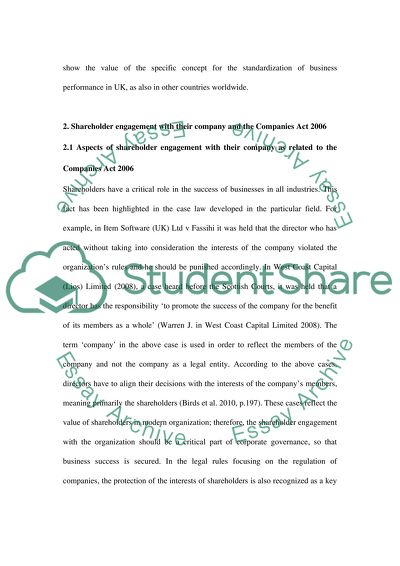Cite this document
(“How Successfully Does the Companies Act 2006 Promote Shareholder Essay”, n.d.)
Retrieved from https://studentshare.org/e-commerce/1444358-how-successfully-does-the-companies-act
Retrieved from https://studentshare.org/e-commerce/1444358-how-successfully-does-the-companies-act
(How Successfully Does the Companies Act 2006 Promote Shareholder Essay)
https://studentshare.org/e-commerce/1444358-how-successfully-does-the-companies-act.
https://studentshare.org/e-commerce/1444358-how-successfully-does-the-companies-act.
“How Successfully Does the Companies Act 2006 Promote Shareholder Essay”, n.d. https://studentshare.org/e-commerce/1444358-how-successfully-does-the-companies-act.


